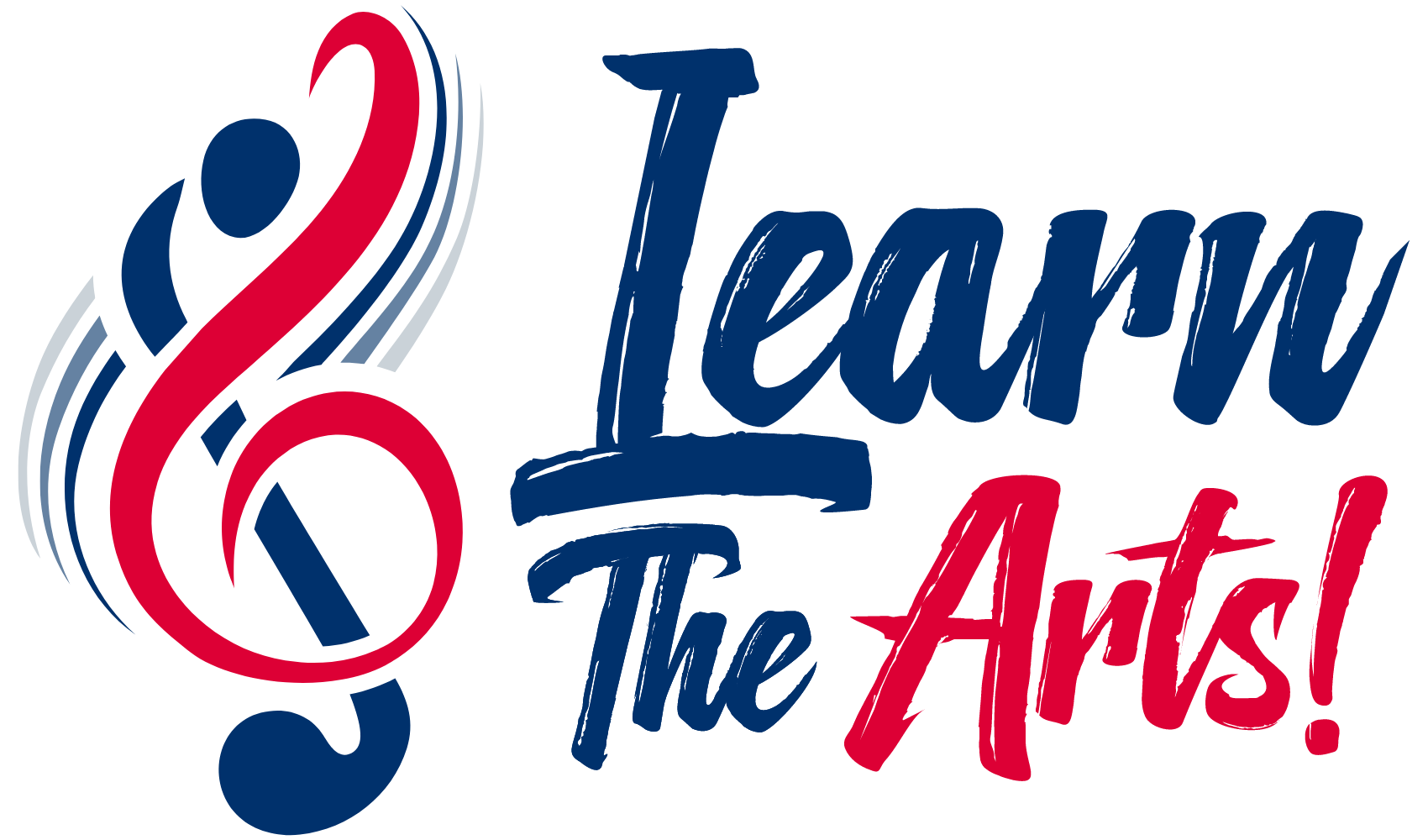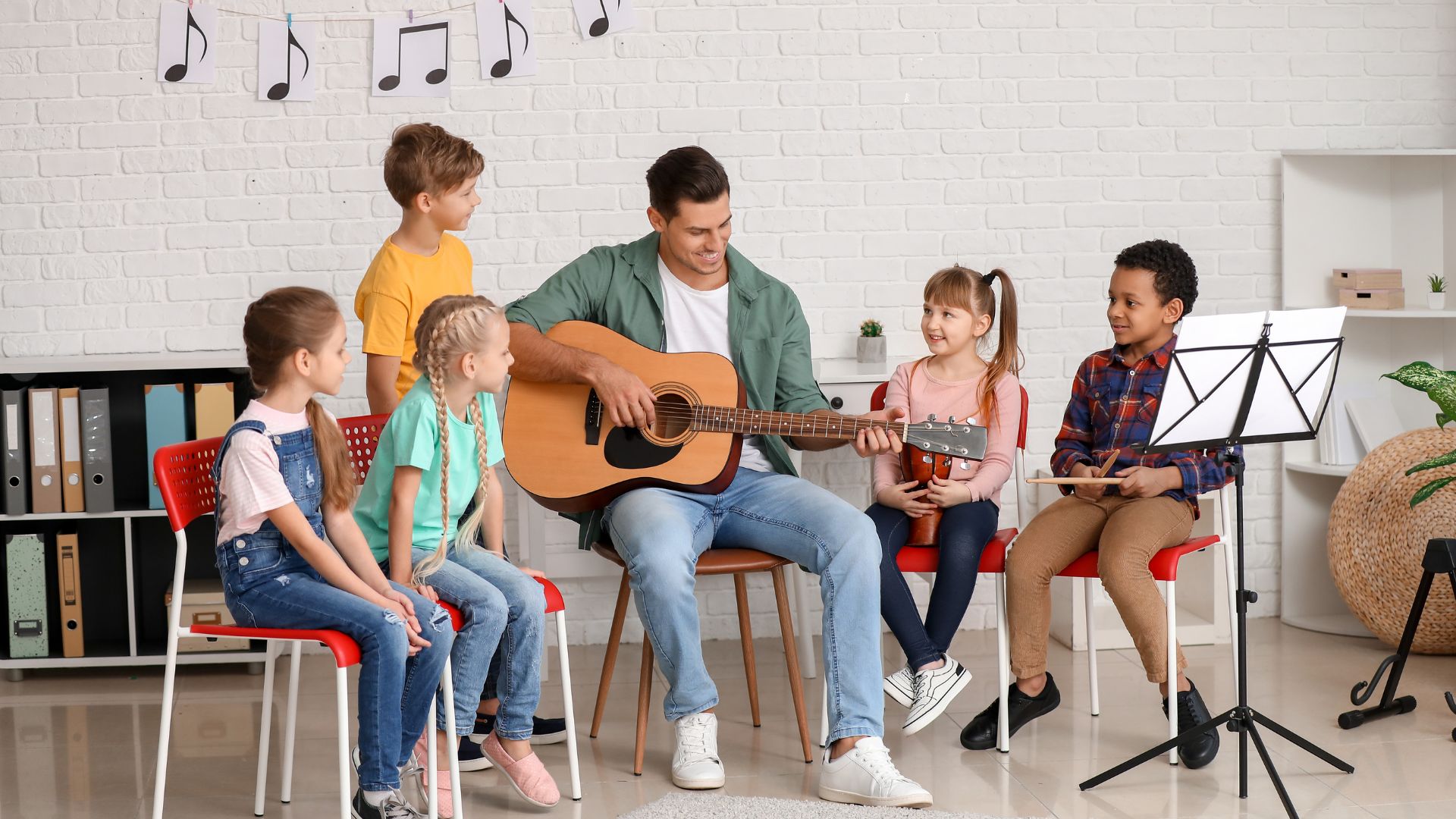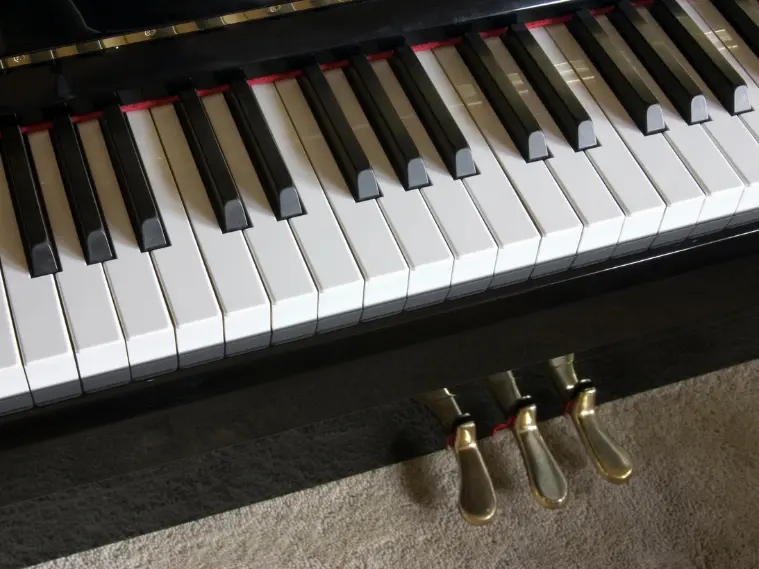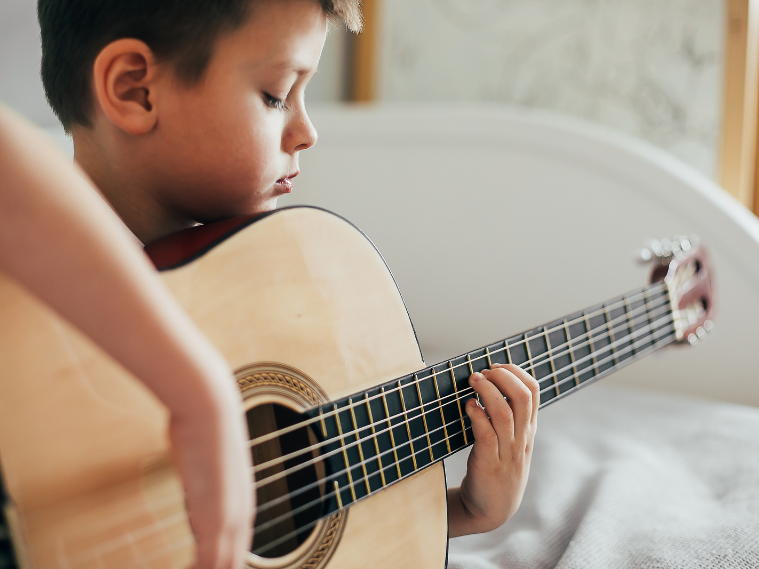If you’re a budding musician, music student, or adult learner rediscovering your passion, sharpening your musical skills doesn’t have to be a repetitive grind. Learning music is as much about having fun as it is about discipline. Whether you’re practicing a new piece or exploring how your talents fit into the broader music industry, unlocking your full potential can be an exciting and rewarding experience when approached with curiosity and creativity.
This guide explores 11 engaging and effective ways to improve as a musician. Whether you’re just starting out or looking to refine your craft, these tips will keep you motivated and make your musical growth an enjoyable process—paving your path toward becoming a master musician.
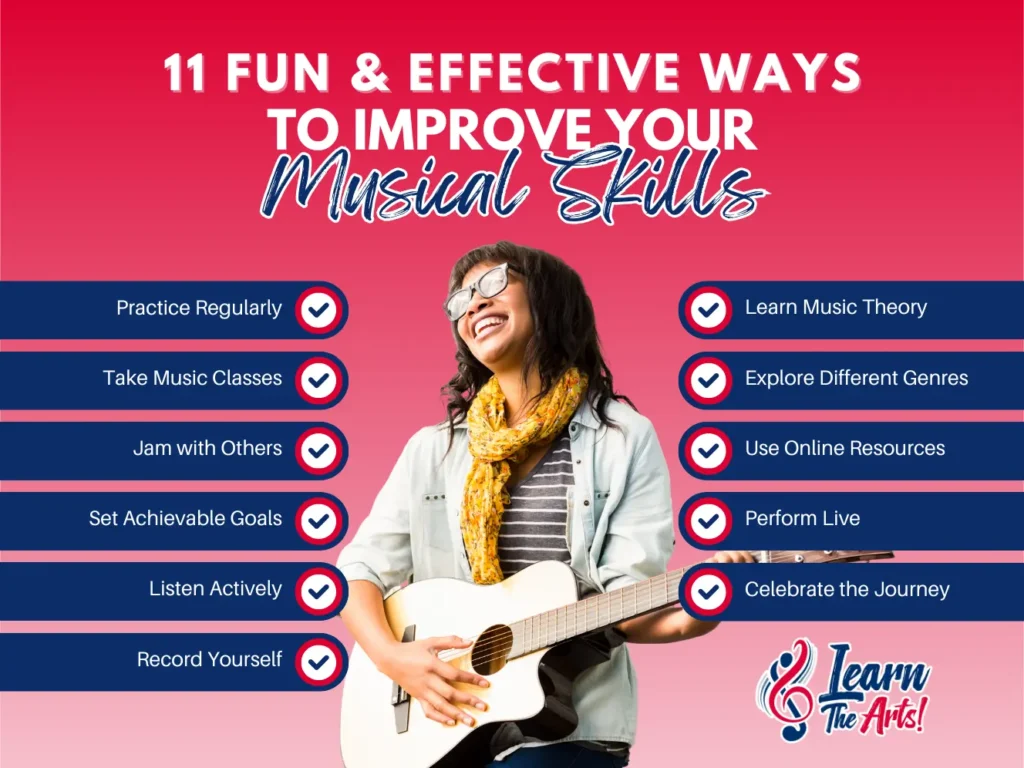
1. Practice Regularly
When it comes to music, consistent practice is the key to progress. Setting aside dedicated time to focus on your craft allows you to build and reinforce the primary skills necessary for growth—whether it’s mastering technique, improving timing, achieving accurate intonation, or developing musicality.
The great thing is that practice doesn’t have to be hours on end to be effective. Even 20–30 minutes of focused, deliberate practice each day can yield significant improvements over time.
To make the best use of your practice sessions, aim to create a routine and stick to it. Structure is essential for developing good habits and seeing steady progress. For instance, you can divide your practice time into segments devoted to different aspects of music, such as technique, repertoire, improvisation, or theory. Strengthening these areas not only enhances your musicianship but also prepares you for broader opportunities within the music industry. A well-structured session prevents aimless playing and ensures you’re making the most of your time.
Designate a dedicated practice space free from distractions. Whether it’s a quiet room or a cozy corner, having a consistent spot where you keep your instrument, music sheets, and other materials readily accessible makes starting your practice much easier. Minimize potential interruptions by letting others know this is your focused time for music. A peaceful and organized environment helps you concentrate and fully immerse yourself in your practice.
Use a practice journal to track your progress. Writing down what you worked on, what improved, and where you’re struggling can give you clarity and direction for the next session. Over time, you’ll begin to notice patterns and milestones, which can motivate you and provide insight into your strengths and areas for growth. Reflecting on past entries can also remind you how far you’ve come!
Remember, the key to successful practice is being intentional. Break complex pieces into smaller, manageable sections. Isolate difficult parts, slow them down, and gradually build up speed until they feel natural. The deliberate repetition of tricky passages is far more effective than playing the entire piece over and over again without focus.
The more regular and mindful your practice is, the more comfortable and skilled you’ll become over time. With persistence, dedication, and a bit of curiosity, you’ll soon start to see your efforts pay off in your playing.
2. Take Music Classes
Music classes provide structure and guidance that self-learning often lacks, making them an invaluable part of improving your musical skills. A skilled instructor brings expertise and experience, helping you to refine your techniques in ways that may not be possible when practicing alone. They can detect subtle mistakes, correct bad habits before they become ingrained, and offer constructive, personalized feedback that is essential for long-term growth as a musician.
One of the significant advantages of music classes is the opportunity to learn advanced techniques that may otherwise be difficult to grasp. Whether it’s mastering complex rhythms, exploring advanced finger placements, or learning to interpret emotional nuances in a piece, an instructor can help you break down these challenges into manageable steps. They also expose you to new musical concepts and genres—ranging from jazz to classical pieces—that can expand your creativity and push your boundaries, allowing you to become a more versatile player over time and develop a more refined musical sound.
Another important benefit of music lessons is the structured curriculum they provide. Lessons are crafted to ensure steady progress, starting with foundational skills and gradually building toward more demanding material. This methodical approach prevents you from progressing too quickly and missing essential basics, which could later hinder your performance. While self-taught musicians can certainly succeed, a well-designed curriculum ensures that every aspect of your learning process is covered, including technique, theory, and performance skills—giving you a well-rounded musical foundation. Music lessons also help with accountability. Having regular instruction sessions keeps you committed, ensuring you’re consistently working toward your goals. Knowing that you have an instructor tracking your progress can motivate you to practice more effectively and keep you from falling into procrastination or stagnation. Beyond accountability, music classes often immerse you in a community of fellow learners, opening opportunities for collaboration, ensemble playing, or recital performances that enhance your overall musical experience.
Ultimately, taking music classes provides a solid foundation for developing both technical ability and artistic expression. With personalized guidance and a structured framework, music classes are an investment in building confidence and mastery, ensuring that your musical journey is both rewarding and fulfilling.
3. Jam with Others
Playing with fellow musicians is one of the most enjoyable and enriching ways to grow musically. Collaborative jamming not only allows you to refine your skills but also introduces you to different techniques, rhythms, and musical styles, helping to expand your repertoire and creativity. The act of improvisation and shared creation in these sessions fosters a deeper understanding of music as a universal language and cultivates a profound connection with it. Jamming cultivates teamwork, active listening, and adaptability—skills that are just as essential in life as they are in music.
Participating in jam sessions also breaks down barriers between musicians of varying skill levels. Whether you’re a beginner or an expert, playing alongside others can provide fresh perspectives and invaluable lessons. Beginners can gain confidence and exposure to real-time collaboration, while experienced players can explore mentorship opportunities and even discover inspiration from the fresh take beginners bring to music. Additionally, it can be an exciting way to step out of your comfort zone, experiment with new instruments or genres, and channel your creativity in unexpected ways.
Finding opportunities to jam has never been easier. Local community centers, music schools, or even informal gatherings at coffee shops can be starting points for in-person jam sessions. Many schools and universities host student bands, ensembles, or conduct workshops that encourage group practice and leadership development. Local music shops often organize events for customers to come together and play. If finding physical spaces to meet is challenging, online opportunities abound. Virtual jam sessions through platforms such as Zoom or Discord are gaining popularity, and online forums and groups, like those on Facebook or Reddit, can connect you with like-minded musicians worldwide. Apps like Meetup specifically cater to niche communities, allowing you to locate nearby groups passionate about your favorite genre or instrument. Whether it’s blues, jazz, rock, or classical, there’s a community out there for every style—including those interested in fields like conducting, music therapy, where collaboration and shared performance can have healing and emotional impact.
Remember, the essence of jamming is not about perfection but about participation and learning. Mistakes are natural, and they often lead to discovery and growth. By collaborating with others, you’ll not only fine-tune your technical ability but also improve your sound quality through real-time feedback and shared insights. Engaging in group sessions allows you to compare and adjust your playing, helping you recognize how subtle changes in dynamics, timing, or tone can enhance overall sound quality. No matter your skill level, each session offers you the chance to learn, share, and build lasting memories through music.
These sessions are ideal for developing accurate intonation, improving your rhythm, and understanding the flow of different styles. Whether you’re riffing with a band or playing duets, the experience deepens your aspects of musicianship and strengthens your audience communication instincts.
Plus, it’s fun—and one of the fastest ways to level up on the path to becoming a master musician.
4. Set Achievable Goals
Learning music can feel overwhelming, especially when faced with the vast array of techniques, styles, and skills to master. This is where setting clear, achievable goals become essential in the context of music lessons. Small, actionable objectives not only keep you focused but also allow you to track progress in a tangible way, helping to maintain motivation throughout your musical journey.
When participating in music lessons, break down larger ambitions into smaller, manageable tasks. For instance, if your goal is to learn an entire song, start by mastering just a few chords or practicing the melody in isolated sections. A goal such as “learn two new chords by the end of the week” is a simple yet effective starting point. It provides a realistic timeline while keeping your practice sessions focused. Similarly, committing to “practice scales for 10 minutes a day” not only builds muscle memory but also reinforces the fundamentals of music theory.
Another example could be “perfect a simple piece within two weeks.” This goal ensures you develop technique and confidence while avoiding overwhelm. By mastering short, achievable pieces, you continue to progress steadily without feeling overly ambitious. Over time, these small victories compound into significant accomplishments, making the learning process feel both rewarding and sustainable.
Importantly, celebrate each milestone, no matter how minor it may seem. Whether it’s playing a chord progression smoothly or completing a week of consistent practice regime, acknowledging these moments keeps the learning process enjoyable. Music lessons aren’t a race—they’re a pathway to discovery and creativity. By pacing yourself with achievable goals, you’ll cultivate consistent growth and remain inspired for the next steps in your musical adventure.
Try setting weekly and monthly goals that target specific skills like perfect pitch, smoother transitions, stage presence, or harmonizing with background vocalists. Celebrate your wins, no matter how small—they build confidence and fuel the momentum needed to grow into a skilled, expressive performer.
Over time, these steady accomplishments help shape you into a master musician who plays with intention and confidence.
5. Listen Actively
Improving your musical skills isn’t just about playing—it’s also about honing your ability to listen keenly. Active listening plays a crucial role in developing your ear training, allowing you to pick up on subtle details like rhythms, melodies, and harmonies that form the structure of a song. It helps you understand music on a deeper level, bridging the gap between technical skill, expressive performance, and solid musicianship skills.
To practice active listening, start by immersing yourself fully in the music. Pay close attention to the tempo, the instrumentation, and the dynamic shifts within a piece. Ask yourself questions such as, “What emotions does the music convey? How do the instruments interact with one another? Are there recurring themes or patterns?” These observations will sharpen your musical intuition. Additionally, challenge yourself by predicting where the music is heading—identify when a key change is about to occur or anticipate the next chord in a progression.
Another way to enhance active listening is by choosing a favorite song and trying to replicate it by ear. Focus on breaking the song into smaller parts, like the melody or bassline, and play or sing them without relying on written notes. This technique not only strengthens your listening skills but also helps you internalize musical structures, making it easier to learn new pieces in the future. For aspiring conductors, active listening is especially crucial for understanding how individual parts interact in an ensemble. Similarly, in conducting music therapy, the ability to deeply listen and respond musically can foster meaningful connections and emotional healing. Over time, active listening will transform the way you approach music, enabling you to play with greater expression, emotion, and understanding.
6. Record Yourself
Recording yourself is one of the most effective methods to evaluate and improve your musical abilities. When you listen back to a recording, it offers an objective perspective on your performance, highlighting both your strengths and areas where you may need improvement. A recording won’t mask mistakes—it provides clear, honest feedback on timing, intonation, tone, facial expressions, body movement, and overall musicality.
To make the most of your recordings, consider using them as a tool for tracking progress over time. Compare your latest recordings to earlier ones to see how far you’ve come in areas like technique, expression, or consistency. Pay attention not only to your sound but also to your facial expressions and body movement—these visual elements play a vital role in conveying emotion and connecting with your audience. This practice can be highly motivating, encouraging you to continue refining your skills holistically.
Additionally, sharing your recordings with trusted friends, instructors, or peers can offer valuable insights. Constructive feedback from others can reveal blind spots that you may have missed on your own. For a professional touch, use audio editing apps like GarageBand or Audacity. These tools are accessible even on a small budget and allow you to fine-tune your recordings or experiment with overlays and effects to better understand your sound.
Recording regularly also builds confidence. It allows you to prepare for performances or auditions by simulating the experience of playing under scrutiny. Over time, this practice will develop your ability to perform with poise and accuracy. By incorporating recording into your routine, you’ll not only improve your skills but gain a clearer sense of your musical identity.
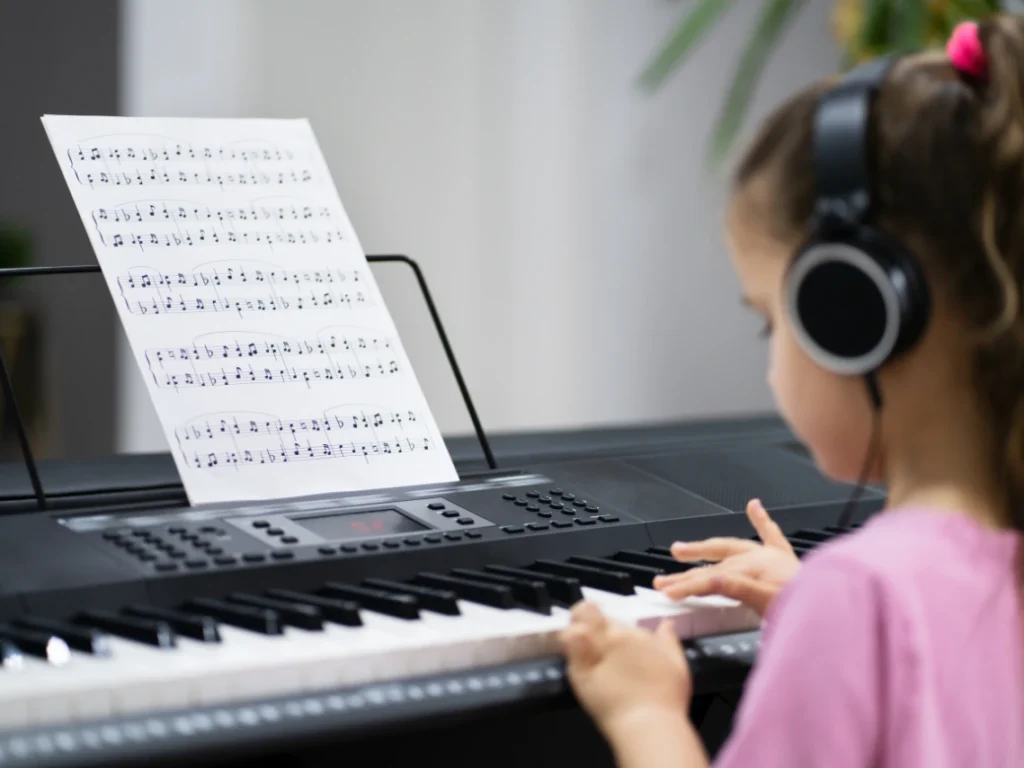
7. Learn Music Theory
Music theory may seem intimidating at first, but it’s incredibly empowering. Understanding keys, intervals, chord progressions, and rhythmic patterns gives you greater freedom and control over your music.
Theory helps you identify tonal centers, develop perfect pitch, and communicate ideas clearly with other musicians. It also makes you a more versatile player—whether you’re composing, improvising, or preparing for studio and live settings.
One of the best places to start is with basic scales and key signatures. Scales form the foundation of melodies and harmonies, and they are fundamental to every genre of music. Understanding key signatures helps you recognize the relationships between notes and chords, as well as identify the tonality of a piece. With just these basics, you’ll be equipped to follow or create cohesive musical phrases that “make sense” to the ear—an essential step in building a vast repertoire of pieces across styles.
Another key focus in music theory should be familiarizing yourself with common chord progressions, such as the I-IV-V-I progression, which serves as the bedrock for many popular songs. Learning how these progressions work and experimenting with them on your instrument allows you to grasp how songs are constructed. You’ll begin to notice patterns in your favorite tracks and gain insight into why they resonate with listeners. Over time, you can use this knowledge to compose your own music or arrange covers with a fresh personal twist—expanding your vast repertoire while strengthening your creative voice.
For instrumentalists, reading sheet music or tabs is another skill worth developing. These notations serve as universal languages that allow musicians to communicate ideas, perform consistently, and understand compositions at a deeper level. On traditional instruments like piano and violin, reading standard notation is invaluable, while guitarists or bassists may prefer tablature to start. Whichever path you choose, this ability to read and interpret music opens a world of possibilities for learning new pieces, playing in ensembles, or experimenting with your own work.
It’s important to approach music theory as a gradual, exploratory process. Start by connecting concepts to the music you already love. If a chord progression sparks your interest, play through variations and see how they transform the feeling of a song. If a melody catches your attention, analyze the scale it comes from and try to build your own. By combining curiosity with practical application, music theory will become an exciting and empowering aspect of your musical growth. Remember, mastery is a lifelong pursuit—embrace patience and enjoy the discovery.
8. Explore Different Genres
Venturing into new musical genres is a fantastic way to expand your horizons and pick up new skills. Each genre offers its own distinct techniques, rhythms, scales, and cultural nuances, which can help you grow as a musician. For instance, jazz emphasizes improvisation and complex chord voicings, while classical music often focuses on intricate compositions and technical precision. Blues teaches soul and expressive bending of notes, whereas EDM thrives on creating dynamic layers and electronic elements. By exploring these diverse styles, you can develop a deeper appreciation for music as a whole and integrate different elements into your own playing or composition.
Begin by creating a playlist featuring popular songs from various genres. Listen with a curious ear and identify what draws you to certain tracks—maybe it’s the swing of a jazz piece, the powerful beats of a hip-hop track, or the unique musical sound that defines a genre. Once you identify these elements, try incorporating them into your practice sessions. For example, you could take a pop song and play it using classical guitar techniques to see how it transforms the musical sound and overall feel of the piece. Another approach is to learn one or two songs from a genre you’re less familiar with and analyze the common patterns or progressions used.
The more styles you experiment with, the more well-rounded you’ll become as a musician. Beyond the technical skills, genre exploration will also help you develop versatility and solid musicianship skills, allowing you to connect with diverse audiences and collaborate across musical communities. Even orchestra conductors benefit from broad stylistic knowledge, as it enhances their ability to lead with nuance and adapt to various musical settings. It’s this blending of influences that often creates the most interesting and unique musicians.9. Use Online Resources
Today’s digital age has unlocked an unprecedented range of tools and platforms to aid in learning music. Whether you’re a total beginner or an experienced player looking to refine your craft, the internet offers endless opportunities to develop your primary skills—such as technique, rhythm, and ear training—at your own pace. From comprehensive courses to bite-sized lessons, you can customize your learning experience to suit your goals while exploring different aspects of musicianship, including theory, improvisation, and performance.
Recommended online resources:
- YouTube Channels: Check out channels like JustinGuitar for guitar tutorials, PianoPig for piano lessons, and Rick Beato for deep dives into music theory and analysis. These channels often combine clear instruction with practical exercises, making it easy to apply what you learn.
- Music Apps: Platforms like Yousician, Simply Piano, and Chordify offer interactive ways to practice playing and improve your ear for chords and rhythms. Many of these apps also provide feedback on your performance, making them great tools for self-assessment.
- Online Communities: Joining forums and communities like Reddit’s r/music or instrument-specific subreddits is an excellent way to connect with fellow musicians. You can ask questions, share your progress, and learn from others’ experiences. Additionally, sites like Ultimate Guitar offer vast libraries of chords and tabs to help you learn songs quickly.
The ease and flexibility of online learning allow you to explore topics as they interest you. Whether it’s developing fingerpicking techniques, mastering a new scale, or understanding digital audio production, there’s no shortage of material to keep you engaged and inspired. By integrating online resources into your routine, you’ll have a powerful complement to traditional learning methods.
10. Perform Live
Performing live can be one of the most rewarding yet challenging parts of being a musician. It pushes you out of your comfort zone, builds your confidence, and sharpens your ability to play under pressure. Live performance provides invaluable experience in connecting with an audience, reacting to unexpected situations, and developing stage presence—including effective facial expressions that convey emotion and enhance your delivery. These experiences are essential steppingstones on your journey to becoming a master musician, both technically and expressively.
Beginner-friendly performance ideas: Start small by playing at local community events, open mic nights, or even small gatherings of friends and family. These low-pressure settings will allow you to get familiar with playing for others while receiving feedback in a supportive environment. Another great option is joining a local band or ensemble. Sharing the stage with others not only reduces nerves but also helps you learn how to collaborate in a group setting. If in-person performance feels intimidating, consider online streaming platforms like Twitch or YouTube Live, where you can play for a virtual audience from the comfort of your home.
Each time you perform, you’ll gain new insights and become more accustomed to handling nerves or unforeseen challenges like technical difficulties. Over time, performing will start to feel natural—and even exhilarating. Plus, it’s an excellent way to showcase your growth and share your passion. Remember, every musician starts somewhere, and each performance is a step toward becoming more accomplished and confident on stage.
11. Celebrate the Journey
Learning music is a lifelong adventure, a path that is as much about the process as it is about the destination. Every small step—from mastering a tricky chord progression to completing your first full song—is worth celebrating. Progress might sometimes feel slow or uneven, but the beauty of music lies in its ability to surprise you with growth when you’re least expecting it. Perhaps you’ll suddenly find that your fingers naturally flow across the keys faster than they used to, or maybe a rhythm that once seemed impossible now feels second nature—clear signs that your primary skills are strengthening and your overall aspects of musicianship are deepening.
Along the way, it’s important to savor the moments, no matter how small. Did you play a piece without mistakes for the first time? That’s a reason to applaud yourself. Have you incorporated feedback into your practice and overcome a recurring challenge? That’s a milestone worth noting. These celebrations not only keep the joy alive but also reinforce your development across all aspects of musicianship, from technical execution to emotional expression.
The musical path isn’t linear; it’s a tapestry of experimentation, creativity, and personal growth. Some days will be tougher than others, but every stumble and mistake is an opportunity to grow stronger. Remember that the ups and downs are all part of becoming not only a better musician but also working toward the artistry of a master musician. By focusing on the process over perfection, you allow yourself to fully immerse yourself in the beauty and magic of learning—including developing deeper audience communication that brings your performances to life.
For instance, Livingston Taylor refers to it as the “care and feeding of your audience.” One clear example he gives: at the end of a song—or an entire concert—musicians should clearly signal that the piece is finished, allowing the audience a cue to respond with applause. This simple act strengthens audience communication and demonstrates a performer’s awareness and respect for the listener’s experience.
Music invites you to continuously evolve, and there is no true finish line—you can always learn, explore, and experiment more. Whether you’re playing your favorite piece of music for the hundredth time or composing something entirely new, the joy of music lies in the sheer act of creating and expressing. Celebrate the triumphs, learn from the setbacks, and treasure the incredible personal story you are crafting note by note.
Develop Your Passion with Joy and Purpose
No matter your starting point, there’s always room to grow as a musician. Whether you’re working toward perfect pitch, preparing for your first studio and live performance, or simply enjoying the beauty of the craft, each step forward adds to your transformation.
With consistency, curiosity, and joy, you can become the artist you’ve always wanted to be. Your journey to becoming a master musician starts today—one note, one goal, one performance at a time.
